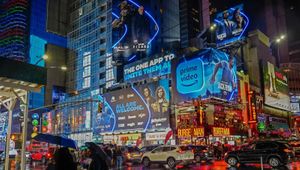
Gen Z Isn’t an Audience. It’s a Culture

Let’s put a face to the demographic. Or rather, two faces.
Blue Ivy Carter is a gen z.
So is Post Malone.
16 years separate these two well-known members of gen z.
The point being, if you were to write a brief targeting ‘gen z’, a demographic description wouldn’t cut it.
Gen Z isn’t an audience – it’s a culture. A reflection of a seismic societal shift in our values, behaviour and lifestyle. The psychographic product of forces so intense and pervasive we don’t even know what the end result looks like yet.
And yet their idiosyncrasies are frequent fodder for our youth-obsessed world. Backed by US$450 billion worth of spending power, gen z has become brands’ new target.
But from random TikTok sensations to obscure internet influencers, winning them over can at times feel like taking a stab in the dark for marketers.
Combing over 100 pieces of definitive gen z research, combined with generational data and depth interviews with gen z's, Untangld set out to connect the dots between trends and create constructive and actionable insight for brands – a playbook, if you will.
Here we share the three evidence-led shifts that intrigued us the most.
#1. Their third places are online.
The constant connectivity of gen z is well-documented: their first phone at ten, over half their waking hours on said phone, social anxiety at the thought of IRL interaction. 75% of gen z believe the internet will bring us closer together and to their credit, they’re endeavouring in earnest to make that a reality.
Third places – usually physical locations outside of the home and workplace where people hang out, shirk the pressures of productivity and be ‘regulars’ – are intrinsic to the human experience. Our gyms, community centres, bars and churches become the places where we find our tribes and a sense of belonging.
But gen z don’t see a distinction between life online and so-called ‘real life’. It follows that they’re finding and creating their third places online, while gaming and chatting on platforms like Reddit, Discord and Twitch.
These spaces where gen z find their people can also be places where brands find theirs. Oriented around interests and fandom, online communities are ready-made opportunities for brands to identify and access audiences. But brands can also nurture these communities, revisiting their view of the customer journey and the search-and-consume online mindset to recognise the deeper engagement gen z consumers are looking for online.
#2. Identity is everything and everything is input.
Previous generations may have shunned labels, but they’ve become central to an identity-conscious gen z.
It’s through this lens – identity input – that gen z consumes brands and entertainment. Infinite content at their fingertips and an ever-quickening trend cycle influence how gen z curates and codifies their identity as distinct to the millennial teens who also drew on music, movies and TV to inform theirs.
Gen Z thrive on their multidimensionality, trying on trends without pledging allegiance to the subculture. In the Spotify age, hyper-specific playlists labelled 'POV: You’re the hot villain' and 'The life I created in my head' are one of the ways gen z present their identity as a mix of taste, mood and aspirations.
To remain relevant beyond the trend cycle, brands must consciously articulate what they’re adding to gen z’s own brand and ensure they’re worth identifying with – or hyping to others.
Brands may also need to lower their expectations – and change tack. Gone are the days where a brand could hope to own consumer identities – think Bud Light Drinkers or the Lululemon Lifestyle. Instead, brands should consider the moments and mindsets in which Gen Z might identify with them – think POV: Today I nail the scorpion handstand.
#3. A black and white sense of justice
In the past five years, gen z have dealt with a pandemic, political and economic crisis and war. And while generations past also faced their own share of uncertainty and upheaval, today’s crises feel closer to home, thanks to the accelerated and inescapable nature of content today.
Shaped in online echo chambers, gen z’s view of the world can be less forgiving. Brands aren’t immune from their wrath, either. 67% of gen z's have stopped purchasing from a brand that behaved in a way that didn’t align with their values, and younger gen z's are quick to criticise celebrity spokespeople who don’t live the values of brands they put their names to.
While most brands will have values, they’ll need to revisit them through the eyes of gen z, whose own are being forged during this seismic societal shift. But theory is nothing without practice, and brands also need to heed the 'do the work' catch cry of gen z, who aren’t interested in arbitrary, performative social purpose.
Leading with empathy
A product of our changing times, gen z are fascinating beyond their youthfulness, and will continue to be a worthy puzzle for brands. As brands look to crack the code, keeping a culture-led lens will help marketers lead with empathy, and build the nuance they need to win the favour of gen z.






